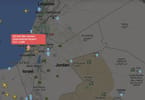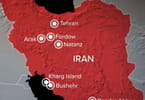As part of a step to protect whales found throughout the Pacific, NGOs from Argentina, Brazil, Chile, Colombia, Costa Rica, the Dominican Republic, Ecuador, Guatemala, Mexico, Nicaragua, Panama, Peru, Uruguay, and Venezuela recently joined forces to protest the killing of whales for so-called scientific purposes. Pacific Whale Foundation was one of the more than 40 non-government organizations (NGOs) in Latin America that joined together to urge their representatives at the International Whaling Commission to take action against “scientific whaling” programs.
“Pacific Whale Foundation’s Ecuador team, led by Dr. Cristina Castro, has been working along the coast of Ecuador since 2001, studying the humpback whales that migrate to Latin America, to mate, give birth, and care for their young,” says Greg Kaufman, president and founder of Pacific Whale Foundation. “In addition to field research, Pacific Whale Foundation’s Ecuador Project also operates ongoing, year-round education and conservation programs.”
According to Kaufman: “The whales we study in Latin America are the same whales that feed in warmer weather near Antarctica and that could be targeted by these so-called scientific whaling expeditions in the South Pacific.
“Latin Americans recognize the value of living humpback whales – in terms of both providing inspiration to the human population and offering a tourism attraction,” sayid Kaufman. “People love the whales and recognize that the practice of killing whales for so-called scientific purposes is not needed; it is an unregulated, uncontrolled front by which the Japanese kill whales for their meat.
“Pacific Whale Foundation’s Ecuador Project was very happy to participate in this effort. We have to exhaust all ways to stop this practice.”
The letter noted that “since the implementation of the moratorium on commercial whaling, the government of Japan has captured more than eight
thousand whales in the Southern Ocean Whale Sanctuary under supposed scientific purposes and that since the beginning of the second phase of
Japan’s Whale Research Program in the Antarctic (JARPA II) in 2006, the annual quota of Antarctic minke whales has reached similar levels of the
commercial whaling quota used for this species before the adoption of the moratorium.”
The petition was presented to IWC representatives simultaneously in 15 countries.
“Pacific Whale Foundation opposes whaling by anyone, for any reason,” said Kaufman. “However, Pacific Whale Foundation targets its anti-whaling efforts towards ending whaling in international waters. Whaling in international waters includes Japan’s ‘lethal-scientific research’ whaling and Iceland and Norway’s commercial whaling, which takes place in direct defiance of the International Whaling Commission’s 1986 moratorium on commercial whaling.”
“As noted in the letter by the NGOs, Pacific Whale Foundation takes a scientific approach to ending whaling; we use scientific data to change the minds of both whalers and managing agencies,” said Kaufman.
Pacific Whale Foundation’s Ecuador Research Project takes place primarily at Machalilla National Park, a 136,000-acre, protected area along the Ecuadorian coastline that encompasses dry tropical forests, white sand beaches and islands, and is home to dolphins, sea lions, whales, and a number of unique bird species.
Research to date has demonstrated that South Pacific humpback whales migrate from feeding grounds in the Antarctic to mate and give birth in Ecuador’s warm waters from June to October. The whales return to their feeding grounds during the southern hemisphere’s summer months (November through May).
Pacific Whale Foundation’s research team has identified over 1,300 humpback whales. They have collaborated with researchers working in Costa Rica, Panama, Columbia, Chile, Peru, Ecuador, and the Antarctic Peninsula to compile a cooperative catalogue of over 2,500 whales.
Pacific Whale Foundation’s work in Ecuador is supported by donations from members and supporters worldwide and by profits from Pacific Whale Foundation Eco-Adventures and Pacific Whale Foundation’s Ocean Stores. To learn more, visit www.pacifciwhale.org .
Visit www.pacificwhale.org to read a copy of the Latin American NGOs’ letter to the IWC.
IHE Ị GA-Ewepụ na edemede a:
- Pacific Whale Foundation’s Ecuador Research Project takes place primarily at Machalilla National Park, a 136,000-acre, protected area along the Ecuadorian coastline that encompasses dry tropical forests, white sand beaches and islands, and is home to dolphins, sea lions, whales, and a number of unique bird species.
- Pacific Whale Foundation was one of the more than 40 non-government organizations (NGOs) in Latin America that joined together to urge their representatives at the International Whaling Commission to take action against “scientific whaling” programs.
- Pacific Whale Foundation’s work in Ecuador is supported by donations from members and supporters worldwide and by profits from Pacific Whale Foundation Eco-Adventures and Pacific Whale Foundation’s Ocean Stores.






















